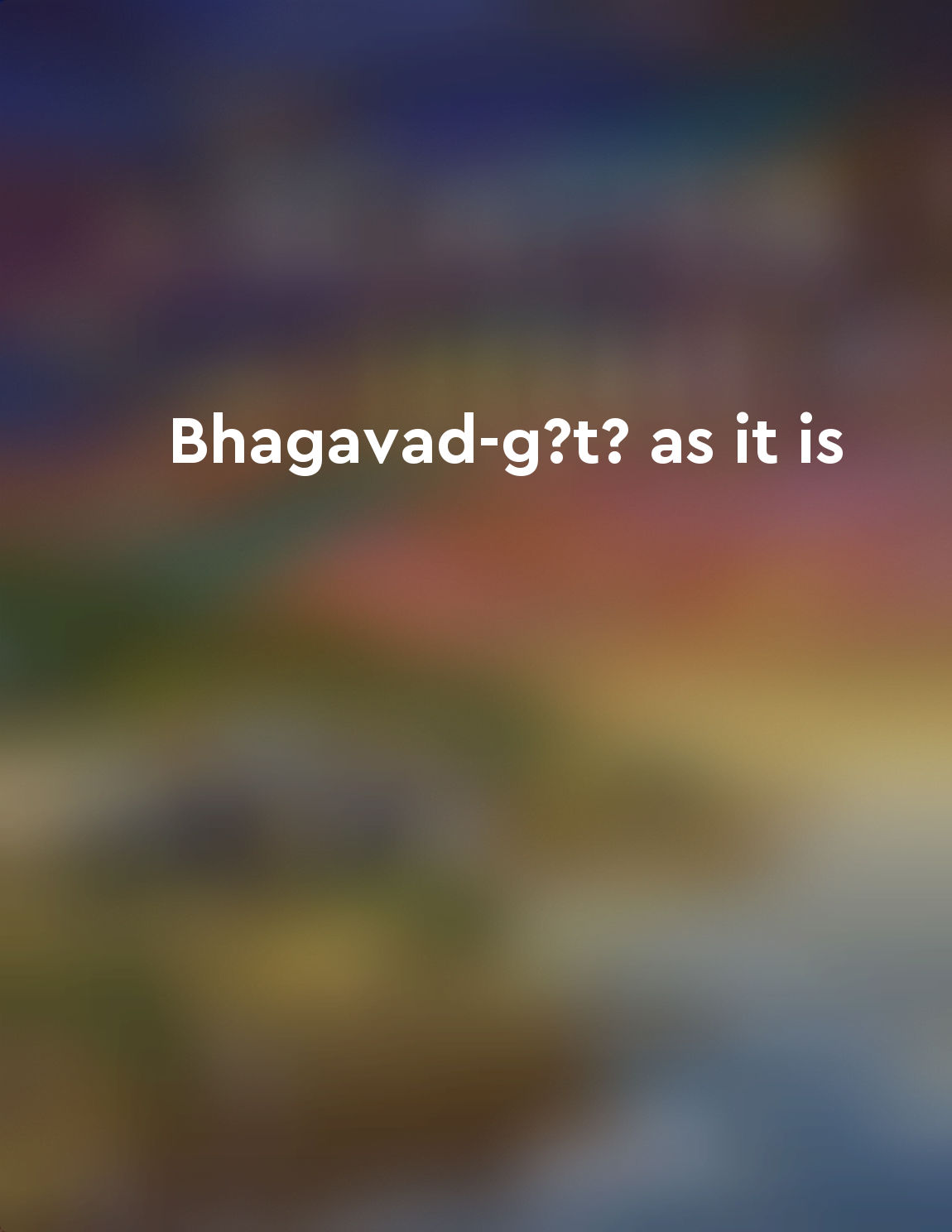Arjuna's dilemma on the battlefield from "summary" of The Bhagavad Gita by Swami Sivananda
Arjuna stood on the battlefield of Kurukshetra, facing his own kith and kin in the form of his cousins, teachers, and dear friends. As he surveyed the opposing forces, he felt overwhelmed by a sense of despair and confusion. He saw the prospect of engaging in battle with those he loved and respected, and he was filled with doubt and hesitation. Arjuna's mind was clouded with conflicting emotions and moral dilemmas. He questioned the righteousness of the war and the consequences of his actions. He wondered if it was worth shedding the blood of his own relatives for the sake of power and wealth. He was torn between his duty as a warrior and his love for his family. Arjuna turned to his charioteer, Lord Krishna, for guidance. He sought wisdom and clarity in the midst of his turmoil. Krishna, recognizing Arjuna's inner turmoil, began to impart his teachings to him. He explained the nature of duty, righteousness, and the true path to liberation. Krishna reminded Arjuna of his duty as a warrior and a Kshatriya. He explained that it was his responsibility to fight for justice and uphold righteousness, regardless of the personal attachments and emotions that clouded his judgment. Krishna emphasized the importance of performing one's duty without attachment to the fruits of action. Through his teachings, Krishna helped Arjuna see beyond his immediate concerns and fears. He encouraged Arjuna to rise above his emotions and fulfill his obligations with courage and conviction. Krishna's words inspired Arjuna to let go of his doubts and embrace his destiny as a warrior. Arjuna's dilemma on the battlefield symbolizes the internal struggles and conflicts that all individuals face in their lives. It highlights the importance of seeking guidance and wisdom in times of uncertainty and moral ambiguity. By overcoming his doubts and embracing his duty, Arjuna sets an example for all seekers on the path to self-realization and enlightenment.Similar Posts
भगवान केवल शुद्ध कर्म करने की ही मांग करते हैं।
भगवान केवल शुद्ध कर्म करने की ही मांग करते हैं। भगवान को भले ही हर किसी का समर्थन हो, लेकिन उन्हें शुद्ध कर्म करने की मांग है। ...

The power of redemption conquers all
In a world full of darkness and despair, redemption shines as a beacon of hope, a glimmer of light amidst the shadows. It is a ...
Finding balance in life
In the midst of life’s challenges and responsibilities, it is essential to find equilibrium. Just as a skilled archer must bala...

The Bhagavad Geeta teaches the importance of selfawareness and introspection
The Bhagavad Gita, a timeless scripture revered by seekers of spiritual wisdom, emphasizes the significance of self-awareness a...
Bhima's vow
In the great epic Mahabharata, one of the most powerful and fierce warriors is Bhima, the second Pandava brother. Known for his...
Fall of Bhishma
The great warrior Bhishma, known for his unparalleled skills and unwavering loyalty, played a crucial role in the epic battle o...

The concept of Karma and its role in shaping destiny is discussed
The Bhagavad Gita delves deeply into the concept of Karma and its impact on shaping one's destiny. Karma, in its simplest form,...
Strive for selfimprovement
The concept of self-improvement is a central theme in the Bhagavad Gita, where Lord Krishna urges Arjuna to strive for personal...

Concept of surrender
The concept of surrender is a crucial aspect of spiritual practice, particularly highlighted in the teachings of the Bhagavad-g...

Surrendering to the divine will
Surrendering to the divine will means accepting that everything that happens is under the control of a higher power, and that w...

